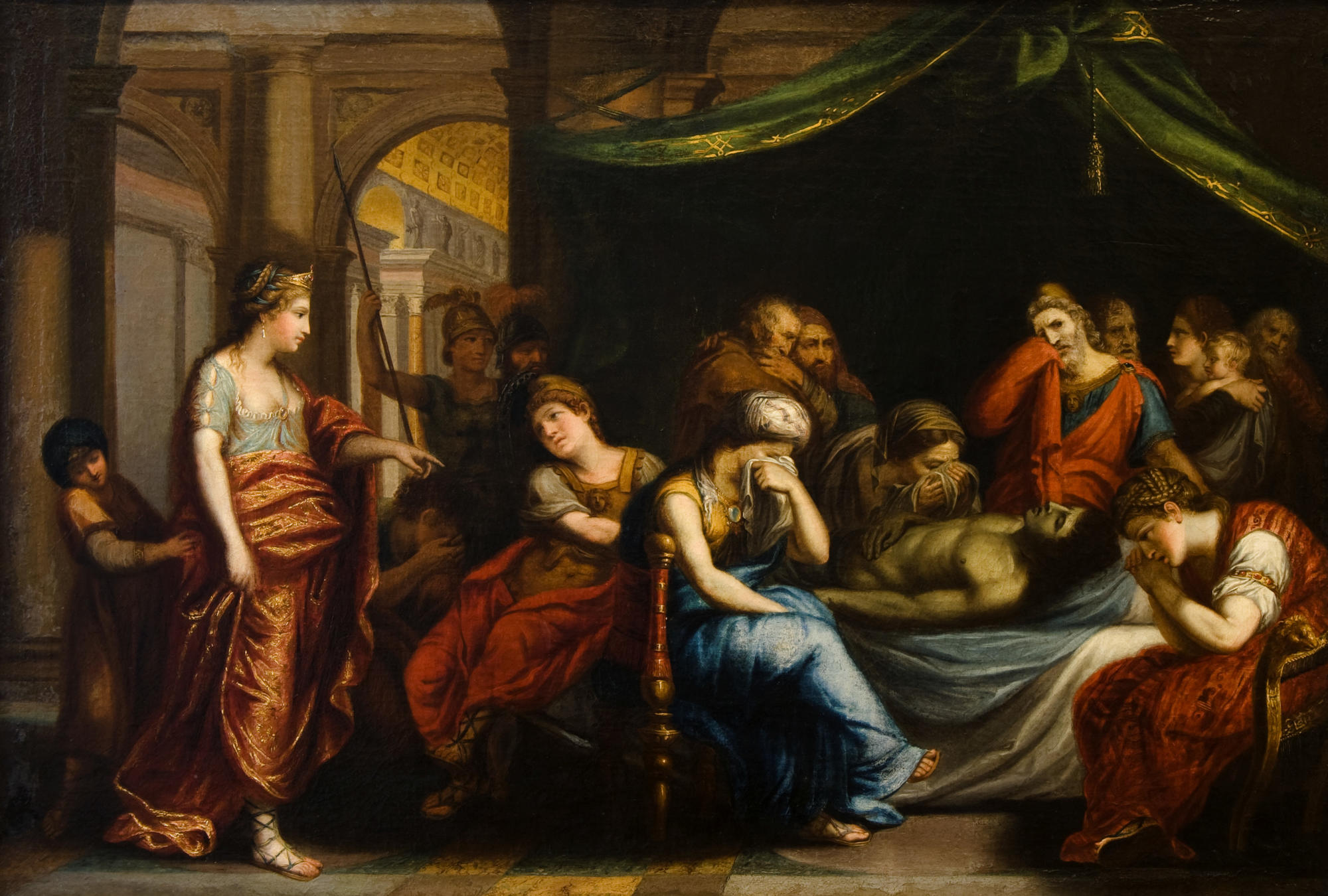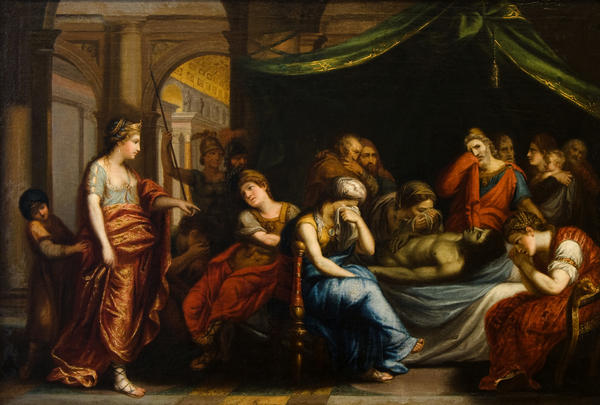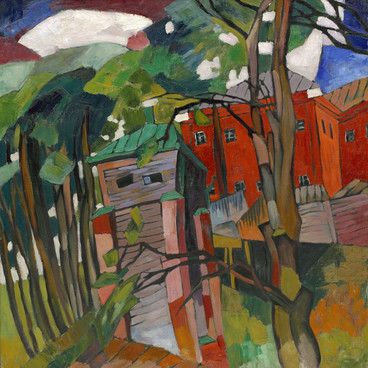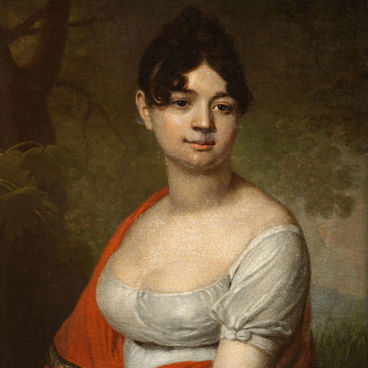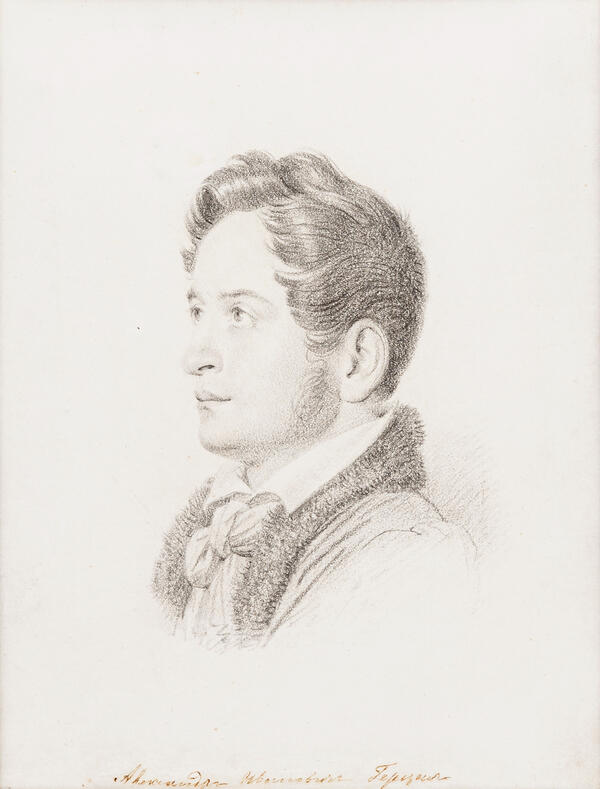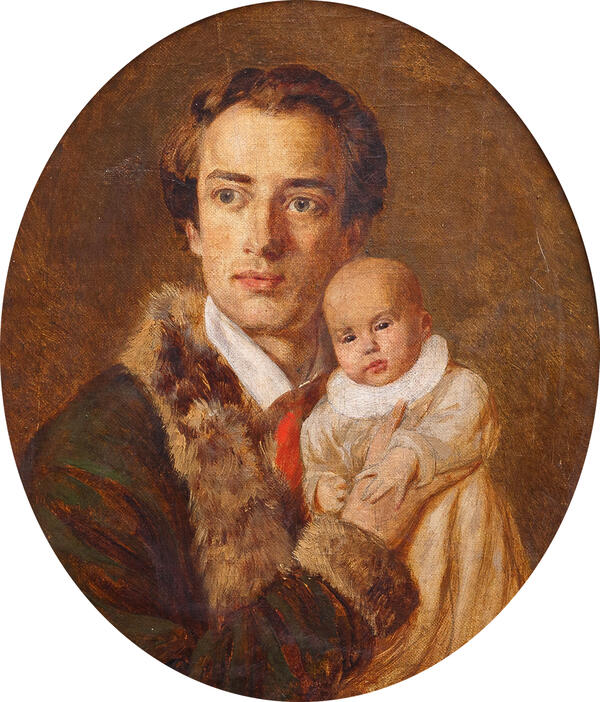Lamentation over Hector was painted by Alexander Vitberg in 1809. For that work the painter was awarded the Grand Gold Medal at the St. Petersburg Academy of Arts. The artist used a scene from Homer’s ancient Greek poem Iliad dedicated to the Trojan War as a subject. The painting was made in the style of classicism; it was prevalent in the late 17th - early 19th centuries. Artists of that style would turn to the ancient art and historical motifs.
Lamentation over Hector
Creation period
1809
Dimensions
87x129 cm
Technique
Canvas, oil
Collection
Exhibition
7
Open in app#1
Alexander Vitberg
Lamentation over Hector
#2
#3
Alexander Vitberg is Russian artist of Swedish origin. He was born in 1787 in St. Petersburg. The parents of the future painter moved to the capital of the Russian Empire from Stockholm about ten years before his birth. The boy started showing the ability to draw early. When Vitberg was fifteen, he enrolled at the St. Petersburg Academy of Arts. There he became one of the Academy’s best students. Traditionally, at the end of the course the graduates painted a competitive painting. That’s how Lamentation over Hector was painted.
#4
The composition of the canvas looks like the theatrical scene of an ancient Greek amphitheatre, where a dramatic performance is put up in front of the audience. In the center of the painting there is the perished Hector, a strong and brave defender of Troy. He is lying on his deathbed. Hector was killed in a fight with the Greek warrior Achilles. The opponent of the brave Trojan could only defeat him thanks to the help of Athena - during the fight she gave Achilles her spear.
#5
The dead warrior is surrounded by his family. In the foreground we see Hector’s wife Andromache and his sister Cassandra. It was the Prophetic Cassandra that predicted the death of her brother. Hector’s parents are bent over his body: the Trojan king Priam and queen Hecuba. On the right you can see Hector’s little son, Astianax, with his nurse. After Troy fell, he was thrown off the city tower. At the bed-foot sits his brother Paris, who made the Trojan War start. Paris abducted Helen, the wife of the Spartan king Menelaus. In retaliation, the king went to war against Troy. Helen of Troy herself is on the left side of the painting. She is painted going up to Hector’s bed, pointing at him with her hand. It’s like Helen is holding him up as an example to Paris. It shows what a real warrior should be like, and calls on her abductor to act with courage.
#6
Artist and architect Alexander Vitberg was granted the title of nobility, and converted to Orthodox Christianity in 1818. The painter’s godfather was Emperor Alexander I. Vitberg is known as the author of the first project of the Cathedral of Christ the Saviour in Moscow. During the construction of the cathedral Vitberg was baselessly accused of embezzling public money and exiled to Vyatka (now Kirov). There he built the Alexander Nevski Cathedral which hasn’t survived to this day. In 1840, the artist was cleared of charges and allowed to return to St. Petersburg. His plan of the Moscow Cathedral of Christ the Saviour remained unfulfilled, but served as the basis for the construction of the cultural center House of receptions in the city of Grozny.
read morehide
00:00
00:00
1x
Lamentation over Hector
Creation period
1809
Dimensions
87x129 cm
Technique
Canvas, oil
Collection
Exhibition
7
Open in app
Share
